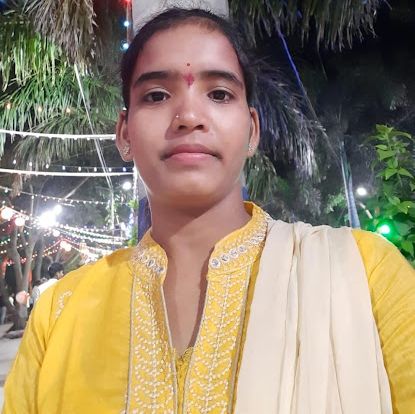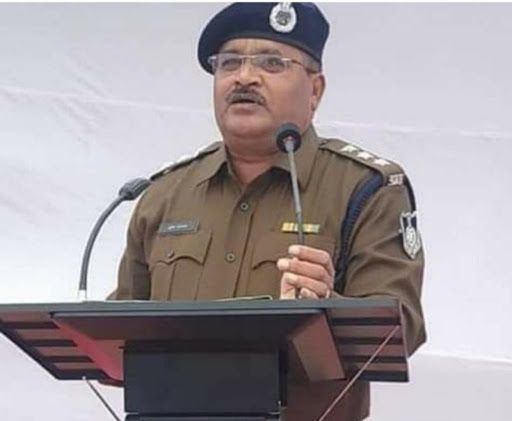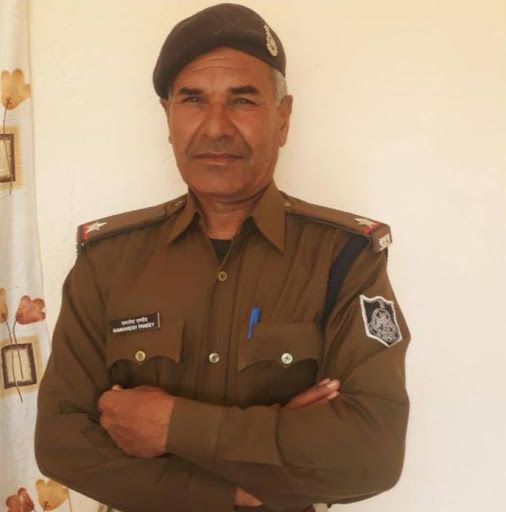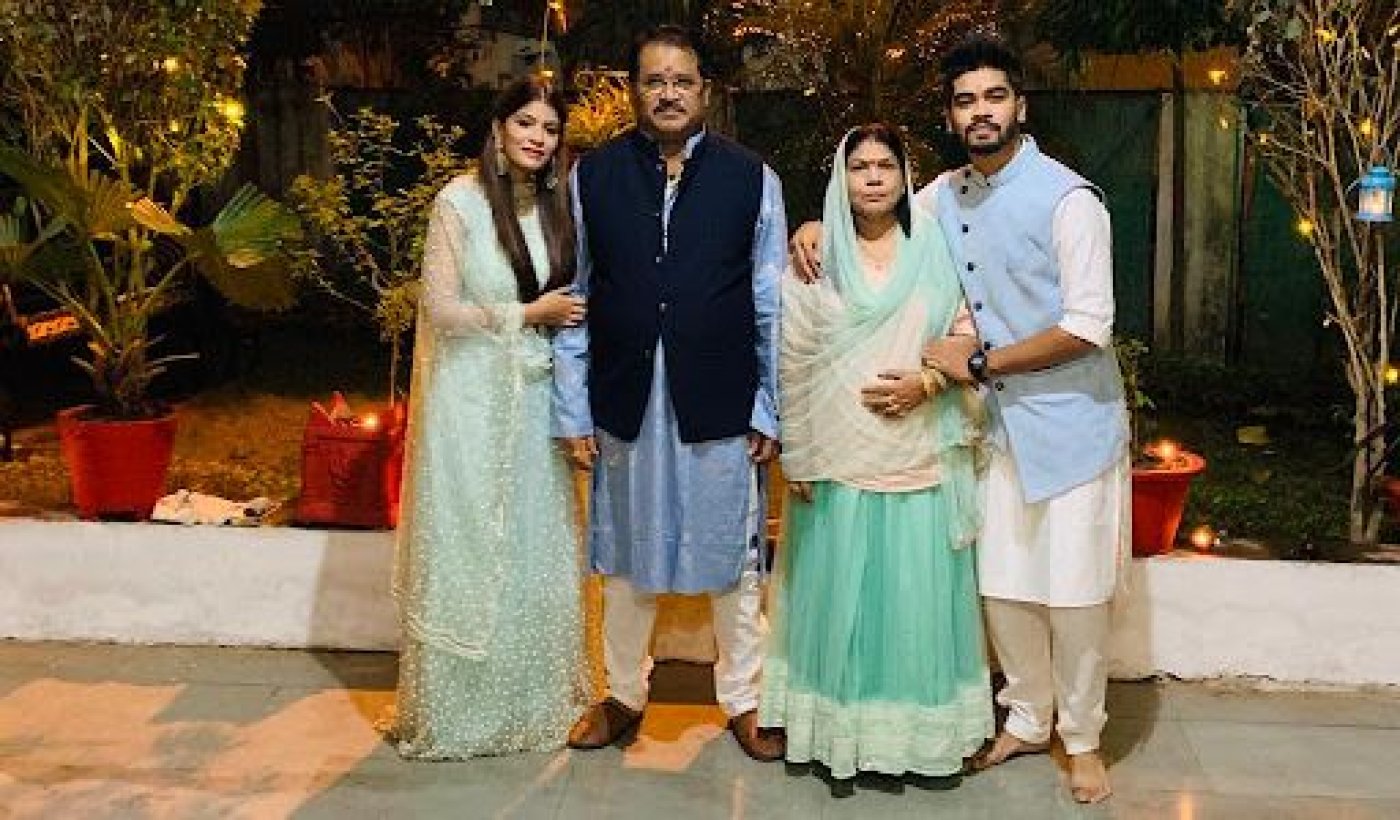Bhopal, Madhya Pradesh: After her father died when she was 14 and her only sister Yogita moved in with her husband after marriage, Laxmi Yadav grew particularly close to her mother, a worker at a government anganwadi or creche in the southern Madhya Pradesh district of Barwani.
Laxmi’s world fell apart during the Covid-19 pandemic, after her mother Durga Yadav, 53, stumbled on a stone and a gash opened on her leg while distributing food to children in her anganwadi in the village of Dhanora.
The injury afflicted her with deep vein thrombosis, the formation of a blood clot, which travelled up her body and, despite 24 days of treatment at a government health centre, eventually claimed her life on 29 April 2020.
Whether the clot lodged itself in her brain or elsewhere was never made clear to Laxmi. What was clear was that her beloved mother was gone. Laxmi was then 16 and alone.
In time, a colleague of her mother told Laxmi about the Madhya Pradesh government’s Mukhyamantri Covid19 Yoddha Kalyan Yojana, the chief minister’s Covid warriors’ benefit programme, which promised Rs 50 lakh as compensation for “front-line workers” who died while “working for the prevention of Covid-19”.
Inspired by a similar union government policy, the Madhya Pradesh programme, instituted by the Bharatiya Janata Party (BJP) government of chief minister Shivraj Singh Chouhan, was in force during both waves of Covid-19. It covered contractual, permanent and outsourced employees classified as front-line workers of a variety of government departments, including health, family welfare, revenue and urban development.
The Madhya Pradesh programme provided families with Rs 50 lakh under any two conditions: either the person had died directly of the Covid-19 virus or died by accident in the line of duty. It required a report from a certified laboratory showing the dead person was positive for Covid-19 or a police first information report (FIR) and autopsy report if the death was “accidental”.
Three weeks after her death, Laxmi applied under the second condition, hoping the compensation could turn around her hardscrabble life.
Two months later, the government turned down her application, as it did 78% of those it received from the families of 325 front-line workers who died during the pandemic, a figure that the Opposition and other experts said was under-reported in the hundreds.
No more than 71 families or 22% were compensated, according to government data presented to the state assembly on 3 March 2023. “Not eligible” or “did not fall in the ambit of the scheme” were the reasons the government gave.
The compensation claims to 33 families were settled with “compassionate appointment” to family members, 23 applications were pending and families of 30 dead employees did not apply for the compensation, the government said in the assembly.
“We are reviewing the applications in case of complaints,” Madhya Pradesh revenue minister Govind Singh Rajput told Article 14. When this story was published, Laxmi had still not been paid, despite a high court order to Rajput’s government to do so.

‘Unjust & Unfair’: High Court
Laxmi applied twice for the compensation in six months and was turned down each time. The government said her mother’s death did not fall in either category.
In the last application on 14 December 2020, the Madhya Pradesh revenue department, the implementing agency, argued that Durga did not die of an accident but fell while walking.
Neither was an FIR filed nor a post-mortem conducted, and she died after being ill for 24 days. Meanwhile, Laxmi replaced her mother under the “compassionate appointment” policy and became, like her mother, a sahyika—as anganwadi workers are officially called—in Dhanora village.
Irritated with the denial of compensation, Laxmi, a seventh-standard dropout, sought help from her uncle, Nanuramram Yadav, 38, who lived next door, and petitioned the Indore High Court against the government decision.
Laxmi and Nanuramram garnered a sum of over Rs 15,000 in donations from relatives to pay the legal expenses of senior advocate Vinay Gandhi, who argued in court that a document submitted by the Barwani tehsildar, a government official, “clearly states” that Durga was injured while on her way to distribute food as part of her Covid duties.
"... merely because the FIR was not lodged and the post-mortem was not conducted, a person cannot be denied the benefit of the aforesaid scheme, which is beneficial in nature,” Gandhi argued. Government counsel A S Parihar pointed to the compensation requirements that were not fulfilled—an FIR and autopsy report.
The Court called the government’s stand “unjust and unfair”.
"It appears that the Government lost sight of the fact that it is not necessary that in all the accidents there should be an FIR and a post-mortem report,” said Justice Subodh Abhyankar. “The scheme says accidental death and according to the Concise Oxford English Dictionary, 'accident' is defined as 1. an unfortunate incident that happens unexpectedly and unintentionally; 2. something that happens by chance or without apparent cause.”
Justice Abhyankar said the requirement for an FIR and autopsy report was “only procedural in nature and cannot be said to override the fundamental purpose of grant of relief to the Covid-19 workers (also known as Covid warriors) and their family members”.
On 1 November 2022, Justice Abhyankar ordered the state government to pay Rs 50 lakh to Laxmi within a period of 30 days.
“It has been eight months since the High Court ordered the government to pay the compensation. Yet, I’m running from pillar to post for it,” Laxmi told Article14. “But, I will file a contempt-of-court suit against the government if the government does not pay within a month.”
We found other families whose kin had died on the job during the pandemic similarly struggling to get the compensation that the government had promised.
Officer Died Of Haemorrhage Not Covid: Govt
Around midnight on 30 May 2020, deputy superintendent of police (DSP) Suresh Shejwal, 58, fainted while at work in the district of Tikamgarh district bordering Uttar Pradesh.
He was rushed to the district hospital, which referred him to Bhopal's Bansal Hospital, 350 km west, where he died. The autopsy report said he died of brain haemorrhage caused by anxiety, hypertension and a disrupted sleep cycle.
Suresh was cremated with a guard of honour in Bhopal. The Tikamgarh district administration said he was eligible for the Rs-50-lakh compensation and forwarded the family’s application to Bhopal.
The application was turned down. The state government argued Shejwal “did not fall in the category of the scheme”, since he died of brain hemorrhage and not by Covid-19 or accident.
“My father died discharging his Covid duties,” said Rahul Shejwal, 25, Suresh’s only son. “He was suffering from high blood pressure, anxiety and hypertension caused relentlessly (Shejwal was often on duty day and night during the pandemic) performing Covid duties.”
"The government implemented a flawed scheme with many loopholes,” said Rahul. “So, we have challenged it to the Jabalpur High Court. We are hopeful of a positive response.”
Rahul’s counsel and high court advocate M P Shukla said the government told the high court that the case was not covered by the compensation policy. The case is listed for hearing in August 2023. The court extended the date when the government counsel did not appear in court.
Shukla said many families of officials who died during the pandemic were battling for compensation in the courts.

Officer Died After Expiry Of Scheme: Govt
Assistant sub-inspector Ramnaresh Pandey (55), an assistant sub-inspector posted in the northern district of Sagar district was cremated with a guard of honour after dying of cardiac arrest on 24 December 2020, three weeks after recovering from Covid-19.
The district collector recommended to the government that it consider Pandey as a front-line worker and pay him Rs 50 lakh under the compensation programme.
Vishnu Pandey, 27, Ramnaresh’s son, said his father had recovered from Covid-19 but showed symptoms again when he died of cardiac arrest. “He died before his Covid tests could be conducted,” said Vishnu.
Like Laxmi and the Shejwal, the Pandey family application was turned down, with the government arguing this time that the scheme had expired on 30 October 2020.
“The norms to pay [front-line workers] are strict, as the state is offering Rs 50 lakh to Covid-19 warriors, the highest in the country,” said a senior revenue department official, speaking on condition of anonymity, since he was not authorised to speak to the media.
“But there is no point in rejecting eligible applications,” admitted the officer, who said he could not comment on individual cases involving the courts, with “many cases now sub-judice”.
“This is a policy with many loopholes,” said Vishnu. “He was on Covid duty and that was mentioned in the recommendation letter of the (police) department and the district collector.”
With his three sisters, Vishnu was asked to vacate his father’s official home after death. They have moved to the family’s ancestral home and an uncle, also a police officer, supports them.
Government employee associations and the Opposition have protested the compensation programme’s rejection of the majority of applications, quibbling over detail and conditions.
“In the second wave, the policy was only reintroduced for two months,” said Umakant Tiwari, secretary of Madhya Pradesh Grade Three Employees Association. “But front-line workers performed Covid duties for over six months.”
“Those who died after the scheme expired can't avail its benefits even though they died performing Covid duties,” said Tiwari. “This is against natural justice.”

‘Instead Of Rewarding, Govt Is Abandoning Families’
“Death is a natural phenomena. How can it be categorised?” said Tiwari.
“Many employees died in various circumstances while discharging their Covid duties,” said Tiwari. “But the policy only provides for two situations in which the family of the deceased can avail the benefits of the scheme. It is a flawed policy.”
When children were abandoning ailing parents during the pandemic, many government employees “selflessly discharged their duties”, said Tiwari, who added that the government in return instituted the compensation programme in case they died.
“Instead of rewarding the families of those martyred,” said Tiwari, “the government is abandoning them.”
Congress member of the legislative (MLA) from Sadarpur constituency, Pratap Grewal, to whose question the state government provided the data on compensation for front-line workers, said the list of dead employees, by district, missed many names.
"The data presented by the government in the assembly not only shows the insensitivity of the government, but it's also underreported,” alleged Grewal, who accused the government of “cheating” the 33 families whose claims were settled with compassionate appointments.
These appointments, according to Grewal, were made to avoid paying Rs 50 lakh. “Compassionate appointment is already a rule, and it has nothing to do with the compensation scheme,” said Grewal.
Indeed, compassionate appointments are part of a social security welfare rules launched in 22 Jan, 2007 by the union government to offer jobs to someone from the family when a Government servant dies while in service or retires on medical grounds.
152 Dead Police Officers Missing From Covid List
The issue of front-line workers first came to light in September 2021 when a Supreme Court advocate called Ehtesham Hasmi filed a public interest litigation (PIL) before the Jabalpur bench of the Madhya Pradesh High Court after the families of 152 police officials who died during Covid were denied the Rs 50-lakh compensation.
The high court reprimanded the government, which requested time to pay the compensation. Hasmi since died, but when Article 14 checked on 26 June 2023 with her colleague Gunja Rasool, no compensation had been paid.
Grewal, the Congress MLA, said the names of these 152 police officials were not in the list of 325 front-line workers placed before the state assembly.
“Nearly 40 died in the first wave and over 112 died in the second, according to the police department’s data,” said Grewal. “Yet, their names are missing from the tabled list."
Grewal said the general administrative department had received over 1,300 applications for compassionate appointments. “But the government says only 325 front-line workers died in both Covid waves,” he said.
Article 14 sought comment from principal secretary of the revenue department Manish Rastogi, but despite repeated calls and messages and reminders over two weeks, he did not respond. We will update this story if he does.
‘Govt Should Show Big Heart’
Rakesh Malviya, MBBS and secretary of the MP medical teachers association said many health workers who died saving others did not get compensation due to them under the programme.
"The highest number of deaths of front-line workers were reported from the health department,” said Malviya. “But only a few got the benefits of the scheme. It's insensitive on the part of the government to deny the benefits of the scheme to the families of front-line workers who died on duty."
"Many health workers were deployed in remote areas with minimal resources, and they saved as many lives as they could,” said Malviya, who said many families were struggling to get by. “But their claims under the FLW scheme were rejected for not having proper documents.”
"A few are approaching the high court, challenging the state government's orders, but many can't,” said Malviya.
Article 14 called the office of health minister Prabhuram Choudhary’s office, seeking comment. “The scheme was floated by the revenue department,” said Anil Tiwari, the minister’s media coordinator. “Hence, he can't comment on why the applications were rejected.”
State BJP spokesperson Hitesh Bajpai said many applications were still being verified. He acknowledged the pandemic was “a difficult time for documentation” since government offices were closed. “Many families are facing difficulties,” he said.
Bajpai said the government would follow court orders in specific cases. “The government is not going to seek a review or challenge an order in the Supreme Court,” said Bajpai.
Congress state media coordinator K K Mishra alleged the government was stalling and cutting back on welfare schemes because it was “reeling under a massive debt of Rs 3.85 lakh crore and paying 25% of the budget in repayment of interest every year”.
"To avoid paying Rs 50 lakh to each family,” said Mishra, “the government turned to red tapism.” Quoting state assembly data reported in the Times of India on 2 March 2023, Mishra said the government had a debt of Rs 16,000 crore.
"Yet, they have crores to pull a crowd for Prime Minister Modi's event, but not for front-line workers,” he said.
“The Government should show big heart by awarding them compensation,” said Tiwari of the Madhya Pradesh Grade Three Employees Association.
Back in Barwani, Laxmi lives in her mother’s home and has food to eat—she cooks herself or gets food from relatives—but she mourns the loss of her mother and finds the loneliness hard to bear.
She said she hoped that her contempt suit would deliver the Rs 50-lakh compensation and allow her to change the course of her life. “If the government pays me compensation,” said Laxmi, “I will go back to school.”
(Kashif Kakvi is a multimedia journalist, covering Madhya Pradesh and Chhattisgarh.)
Get exclusive access to new databases, expert analyses, weekly newsletters, book excerpts and new ideas on democracy, law and society in India. Subscribe to Article 14.

